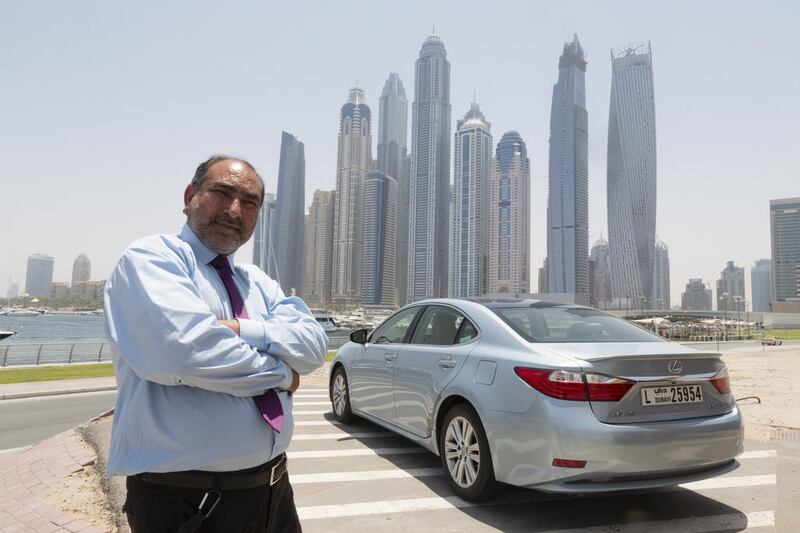DUBAI // Muhammad Zafar knows only too well that safety should not take a back seat when driving during Ramadan and often sees tired, hungry and sleepy motorists increase the risk of crashes as they rush home to break their fast.
The Pakistani limousine driver, who has worked for Dubai-based taxi app firm Careem since 2013, said reckless and dangerous driving is common all year round.
“My driving behaviour won’t change this Ramadan. I’ll wear my seat belt, not use the mobile phone while driving, stick to the speed limit and make sure there’s enough space between my car and the vehicle in front,” said Mr Zafar, who expects to work seven to eight hours a day in Ramadan, instead of the usual 16.
Last year, 250 traffic accidents were recorded by Dubai Police on the first day of Ramadan, between 2.30pm and 7.30pm. Speeding, reckless driving and not leaving a safe distance between vehicles were the main causes of the accidents.
Careem, which calls all its drivers “captains”, runs a programme to help improve driving behaviour and build a culture of traffic safety year-round.
“When we bring them on board, we take them through our own training and they’re also made to do a theory test,” said Faraz Syed, managing director at Careem UAE.
“Our training has a strong emphasis on safety such as don’t be on your phone, wear your seat belt, drive sensibly, don’t exceed the speed limit, don’t change lanes without indicating, stuff like that.”
Careem’s customers are also being asked to rate its captains, which gives the organisation regular feedback on how drivers are doing.
“We encourage our captains to do the best job they can, so based on their rating the level and tiers within our company keep on increasing,” Mr Syed said.
“What happens is, as you go up the tiers, you also get better benefits. If any customer rates the driver less than 4 stars, we ask the customer automatically why the rating is negative. If it’s to do with driving, they have to be retrained before they take another customer.
“Our customers are able to report immediately if they feel unsafe - if they’re tailgating or on the phone - so we are able to make sure the driver learning from this behaviour and fixing it.”
To encourage safe driving, Careem launched the “super captains” incentive programme last March.
“Super captains” have a higher earning potential, as well as rewards and opportunities for their loyalty, exceptional customer service and performance.
As a super captain Mr Zafar, 47, takes pride in his 4.9 out of 5 stars and is keen to maintain and improve his rating.
With road safety a priority, the company has initiated campaigns to raise awareness among its captains and the public.
Last year, it ran a passenger safety campaign to give permission to its drivers to refuse to take back-seat passengers who fail to buckle up.
The company also asked customers to formally pledge to wear seat belts and become advocates for road safety. In return, pledgers were rewarded with a 25 per cent discount on their next five Careem rides.
“Until now, I still make sure my backseat passengers wear their seat belts at all times,” said Mr Zafar, who drives a Lexus ES 350. “They thank me for reminding them to buckle up.”
At present, only those seated in the front of a vehicle have been required by law to buckle up. By July 1, it will be mandatory for backseat passengers to belt up, as part of the new traffic laws.
Often Mr Zafar’s passengers ask him to drive faster on the motorway with a 120kph speed limit, with a 20kph speed buffer.
“I know I can drive at the maximum speed limit but I try to maintain a speed limit so they will feel safe and comfortable during the ride from Dubai to Abu Dhabi,” Mr Zafar said.
rruiz@thenational.ae






